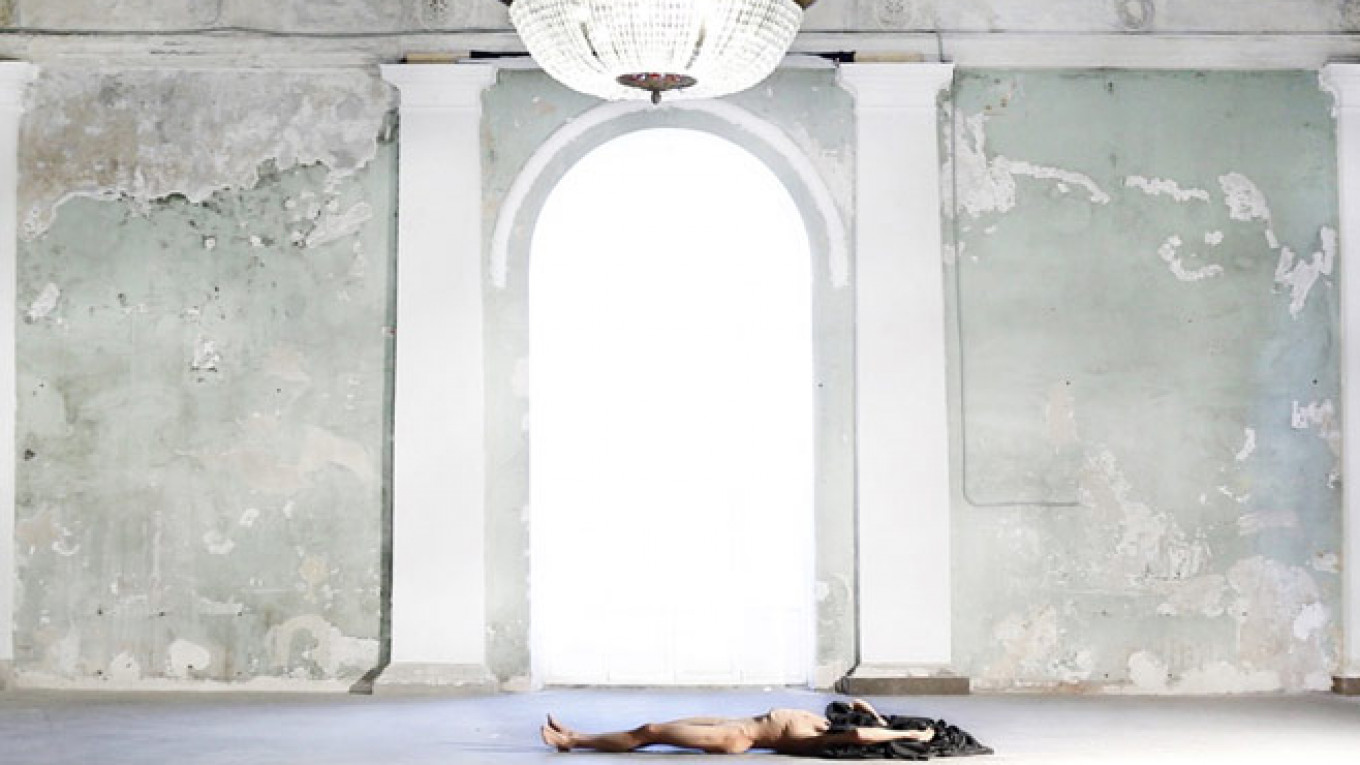Contemporary artist Tatyana Podmarkova has returned to RuArts Gallery for the second time with a solo exhibition called "Lazarus."
The biblical story of Christ bringing Lazarus back from the dead is the central image of this exhibition. In the words of the show's curator, Anastasia Skvortsova, the artist tries to depict the "constant inner drama" of destruction and resurrection. "'Lazarus' continues the pursuit for the lost harmony of the old masters," she wrote.
A nude body is the central figure in Podmarkova's paintings, which convey the themes of destruction and resurrection through both images and the textured surface of the canvases. The canvases are wrapped in plaster-covered gauze, as if they'd been buried and revived along with their subject. The muted colors, predominantly white and gray, give the paintings an extra dimension.
When entering the gallery, visitors are confronted with Podmarkova's largest work of the exhibition: A naked man covered in a white sheet appearing to be dead and beginning to decompose. On the ground floor there is a smaller painting and one of Podmarkova's video installations. The exhibition continues on the second floor with smaller paintings and a second video installation. Although there are many paintings on display, the visitor is unlikely to feel overwhelmed by the exhibition. It is thematically whole and a familiar ancient theme, which the artist used as "an effective way to organize a fragmented chaos of the modern world." And the expanse of gray walls between the paintings let the canvases speak for themselves.
Podmarkova, who is based in St. Petersburg, has showed her works in several joint group exhibitions across the world and has had several solo exhibitions.
Lazarus will be on display at the RuArts Gallery until Oct 6. 10 1st Zachatyevsky Pereulok. 495-637-4475. ruarts.ru. Open Tues. through Sat. from noon to 8 p.m.
A Message from The Moscow Times:
Dear readers,
We are facing unprecedented challenges. Russia's Prosecutor General's Office has designated The Moscow Times as an "undesirable" organization, criminalizing our work and putting our staff at risk of prosecution. This follows our earlier unjust labeling as a "foreign agent."
These actions are direct attempts to silence independent journalism in Russia. The authorities claim our work "discredits the decisions of the Russian leadership." We see things differently: we strive to provide accurate, unbiased reporting on Russia.
We, the journalists of The Moscow Times, refuse to be silenced. But to continue our work, we need your help.
Your support, no matter how small, makes a world of difference. If you can, please support us monthly starting from just $2. It's quick to set up, and every contribution makes a significant impact.
By supporting The Moscow Times, you're defending open, independent journalism in the face of repression. Thank you for standing with us.
Remind me later.






